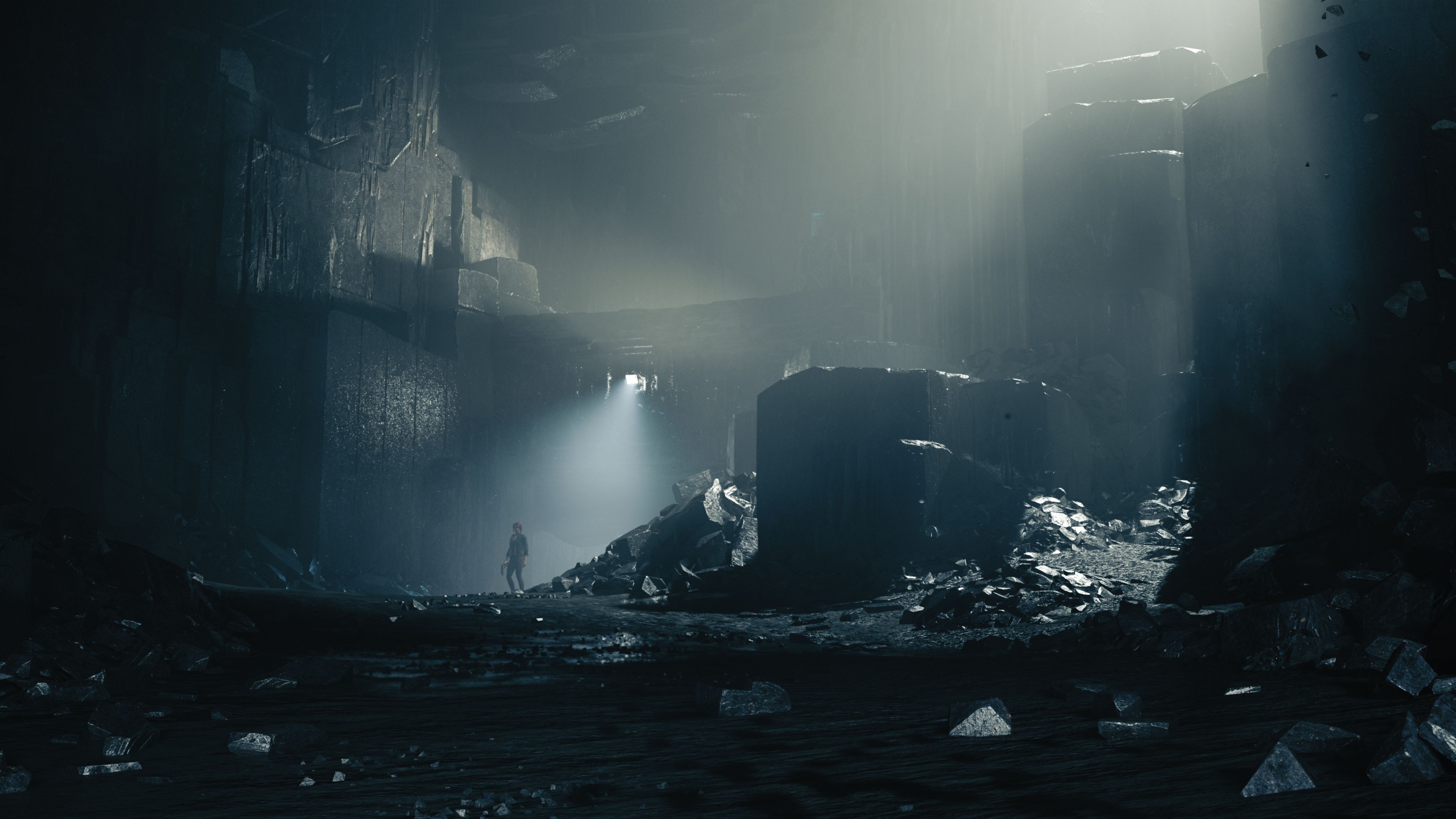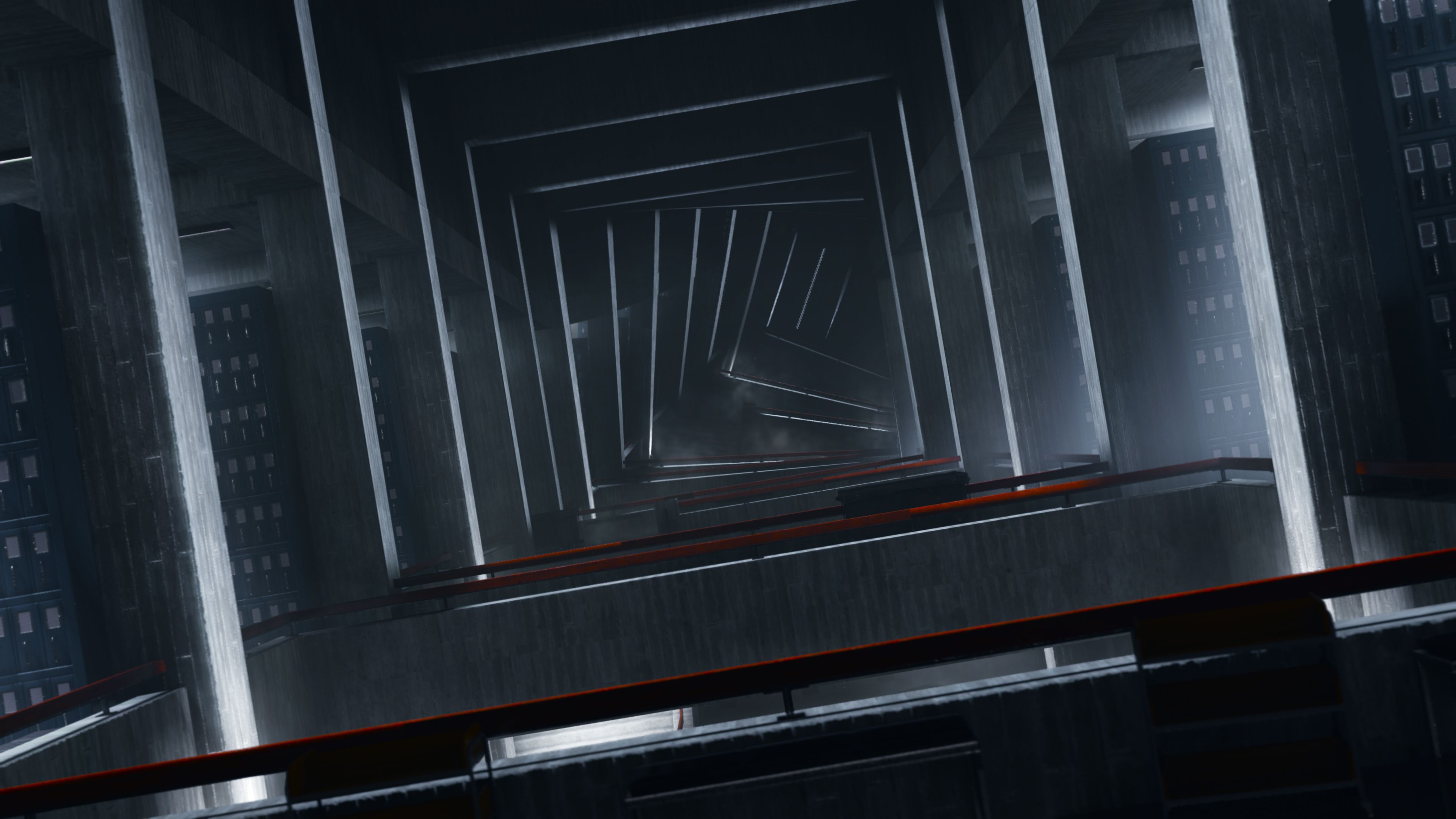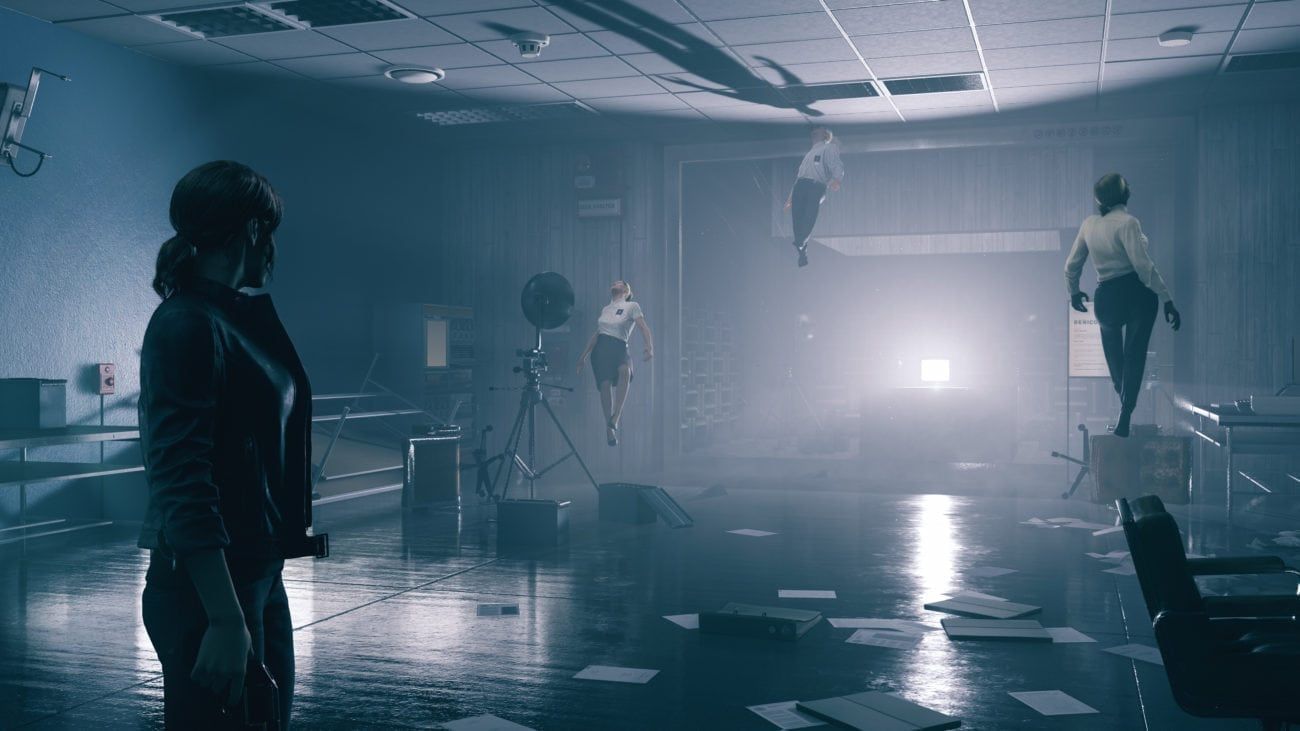Control is the next game from Remedy Entertainment, and honestly that's all I needed to hear to be sold on it. I didn't find Remedy until their 2010 game Alan Wake, but both it and Remedy's approach to games was so appealing to me that I knew that I would always be interested in anything they did.
While Quantum Break ended up not hitting as hard as Alan Wake did for me, conversations with Thomas Puha--the communications director at Remedy--makes me believe Remedy is always open and willing to engage with their own shortcomings. Control brings the company back to New York City, though the focus appears to be on the infinitely deep Oldest House, which also features constant change with its layout. This time they'll be having a female lead played by the excellent Courtney Hope, whose performance in Quantum Break as Beth Wilder remains one of the higher points of that game.
[pullquote]"Control is the next game from Remedy Entertainment, and honestly that's all I needed to hear to be sold on it."[/pullquote]
Alan Wake's greatest strengths were its story about writings coming to life, the mystery of the darkness and the rules that govern it, metatextual moments like a character reading about reading about their actions, and the gameplay of using light to make enemies vulnerable or keep you safe. By comparison, the premise for Control--which follows a Federal Bureau of Control who seek out and take in supernatural objects--leaves a lot on the table in terms of what Remedy can do. It also reminds me of the online database SCP (Secure. Contain. Protect.) that serves a similar purpose in collecting and chronicling various supernatural objects and people, often with a tinge of horror. Each object has its own history, purpose, ruleset, etc, and often the objects that are in the SCP archives have interlocking information that create a greater context for the world.
Each of Remedy's games are capable of addressing horror material. Whether it be the underbelly of New York City in Max Payne, the toying with light in Alan Wake, or the suspense of unkillable shifters in Quantum Break, Remedy can excel at filling their players with dread. At the very least, they are capable of making something feel off, not quite right, and certainly weird. Control could totally tamper into these, especially with their trend of in-game media sometimes serving as stand-alone tales. Having a series of videos or logs on the various items obtained by the Bureau could tell small tales of their backstory and purpose, both entertaining and informing by their own right and creating more fiction for the world to exist in. Imagery from trailers already indicate this direction, such as the still floating bodies seen at the beginning of a recent demo.
[pullquote]"The premise for Control--which follows a Federal Bureau of Control who seek out and take in supernatural objects--leaves a lot on the table in terms of what Remedy can do."[/pullquote]
As mentioned before, Control will seemingly take place entirely within the shifting architecture of the Oldest House, something that signals to me that this could be a roguelike game, with the director, Jesse, making her way deeper and deeper into procedurally-generated levels. Roguelikes are not renowned for their strong narratives, something Remedy is known for, which makes me very curious how they will incorporate story into a run-based game, if it is one. Focusing on the pistol for combat gives them a base to work off of, and supernatural abilities obtained during play lets them potentially vary each run. If each power is also tied to a specific object within the Bureau's collection also means that the expansion of fiction aligns with the expansion of capability, pushing the player to find more secrets within the Oldest House in order to learn more and gain new powers.
Or Control could be as they said, more of a sandbox game than previous linear titles, with a Metroid design of unlocking new areas with new abilities. Even this change would be new territory for Remedy, as all of their previous work, Death Rally notwithstanding, were all linear level progression-style games. Dropping the TV tie in feature from Quantum Break--which was hindered by Microsoft's backpedaling on the initial pitch of the Xbox One--means that Control can focus on just being a game instead of a transmedia experience. It will also be one of their quickest turnaround times for a game in development, as Max Payne 2 and Alan Wake had a seven year period between them, and six years afterwards, Quantum Break finally released.
[pullquote]"Dropping the TV tie in feature from Quantum Break means that Control can focus on just being a game instead of a transmedia experience."[/pullquote]
Combat has always looked heavily stylistic in Remedy games, from the bullet time effect of Max Payne, the shadow-imbued foes of Alan Wake, and the time-breaking powers of Quantum Break. Supernatural telekinesis in Control looks to continue this trend. Combat is quick with Jesse running around freely able to fire at any time, utilizing her abilities to shield herself with debris and moving and throwing anything and everything not bolted to the floor at her enemies, the Hiss. The Hiss possess the bodies of staff members of the Bureau, which opens up another avenue for horror as the status of both possessor and the possessed might end up being painful for both.
Whatever the case, whether it's a roguelike, sandbox game, horror or thriller title, Control is a Remedy Entertainment title and even without a gameplay demo, I would still place it near the top of my list for anticipated games for 2019.
Control is set to release sometime in 2019 on PS4, Xbox One, and PC.




